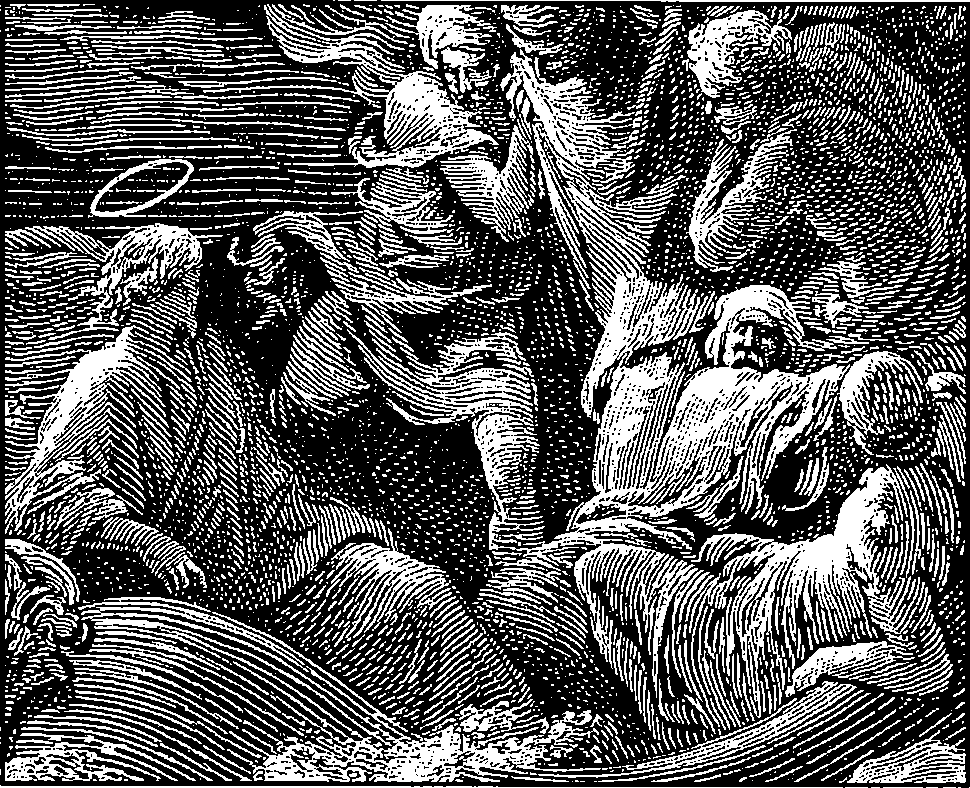Lo, I Am With You Always
The setting for our lesson is a storm on the Sea of Galilee. “Now when Jesus saw great multitudes about him, he gave commandment to depart unto the other side” (Matthew 8:18).
The press of the crowd to follow Jesus and witness his many miracles began to tax his strength, and he wished to go by boat with his disciples to the other side of the Sea of Galilee to find rest and refreshment. The Gospel of Mark also tells of this event: “The same day, when the evening was come, he saith unto them, Let us pass over unto the other side. And when they had sent away the multitude, they took him even as he was in the ship. And there were also with him other little ships. And there arose a great storm of wind, and the waves beat into the ship, so that it was now full” (Mark 4:35-37).
The Sea of Galilee is known for tempestuous storms that usually originate in the hills of Lebanon and course down between the mountain passes unto the face of the lake. These storms exhibit such fury that the Sea of Galilee be comes very dangerous indeed. Such a storm arose on this occasion.
The Master was with the apostles in the boat. In fact, he was in the “hinder part” of the boat “asleep on a pillow” when the storm arose. The disciples awoke him, and said: “Master, carest thou not that we perish? And he arose, and rebuked the wind, and said unto the sea, Peace, be still. And the wind ceased, and there was a great calm. And he said unto them, Why are ye so fearful? how is it that ye have no faith? And they feared exceedingly, and said one to another, What manner of man is this, that even the wind and the sea obey him?” (Mark 4:38-41).
Jesus was laying the basis for the apostles to have complete confidence and trust in him as their Master. He wished to inculcate faith in the apostles, and this whole scene, this whole providence of God, was designed to that end. With the Master in the boat with them, even though he was asleep, their faith should have been sufficient in connection with his claim to be the Messiah, the One sent from God, that regardless of whether or not he slept, the powers, the elements of earth, would not be permitted to sink the ship in spite of evidences to the contrary. Of course when he stood up and rebuked both the wind and the sea, his action was something unheard of, and the apostles then realized that he was indeed Master of earth and sea.
The Gospels of Matthew, Mark, and John tell of another occasion when Jesus and the apostles were traveling by boat over the Sea of Galilee. The multitudes who had been sent away hurried around to the other side of the sea, so that when the boat landed, they were there to witness further miracles and hear more of Jesus’ sermons. He gave the people many lessons. As evening drew near, the crowd had not eaten, so Jesus miraculously provided for them before sending them back to their homes on the opposite side of the sea. After he blessed five loaves of bread and two fish, there was a miraculous multiplication so that the crowd of five thousand people could be sufficiently fed. Imagine feeding so many with just five loaves and two fish! And after the people had been given the food, twelve baskets full of bread remained – enough for the disciples themselves in abundance.

Jesus, stilling the tempest
Following this miracle, the Master constrained the disciples to get back in the boat to return to the other side whence they had originally come. He had to constrain them because they did not want to be separated from him. They wanted to stay with him at all times, but as was frequently the case, the Master wished to get completely separated, to be apart from the cares of earth and even from the apostles, by going either into the desert or to the top of a mountain. He wanted to get away from distracting influences so that he might commune with his Father. On this occasion, he went up into a mountain to pray: “And straightway Jesus constrained his disciples to get into a ship, and to go before him unto the other side, while he sent the multitudes away. And when he had sent the multitudes away, he went up into a mountain apart to pray: and when the evening was come, he was there alone” (Matthew 14:22, 23).
– Continued next issue
